People often ask me why I bother to refurbish old computers and often garnish their comments with all types of snide remarks and put-downs. Do I care? Certainly not.
I derive a lot of pleasure from breathing new life into old PCs, especially if they’ve been neglected and need some TLC. This particular machine belongs to a friend and he was about to throw it out onto the street until I intervened.
Complete Strip-Down
The first thing I do is to strip the computer down to the metal, remove all its components, and then wash everything that’s not electrical in hot soapy water, finishing off with a good blast of the hose pipe. I then leave everything out in the hot sun to dry. In this scorching weather, that takes no more than a few minutes.
I then clean the motherboard and other components with compressed air and a soft brush, remove the heatsink, renew the thermal paste and ensure that all fans are free from dust and other gunk. Rebuilding the PC is always a pleasure and with HP Compaq machines, because they are built to last with top quality materials, they are difficult to break. On the other hand, you will need the correct screwdrivers because HP always uses aluminium torque screws. I ensure every detail is cleaned and inspected and once the rebuild is finished, I hit the switch not without a little trepidation.
This HP Compaq Deskpro Pentium III E was originally built in February 2000 (HP is very good at marking all the components) and came with a Maxtor 30GB hard drive, 2 x 256 DIMMs, a CD-ROM, floppy, and a hard drive caddy device with a parallel port connection which must have been an early removable hard drive mechanism. The huge motherboard speaker is connected to the motherboard and of course, the on/off switch is proprietary HP.
Installing Windows XP
When I first received the PC, Windows XP was running fine, but then developed errors so I went for a clean install which is usually a stroll in the park, but not on this occasion. To cut a long story short, the install took several hours, not least because of read/write errors from the CD, but also because of the proprietary HP BIOS which kept throwing up errors. When the OS was finally installed, I didn’t even need to install any further drivers either as everything was recognised immediately.
With XP SP 2 finally installed, I ensured that all was working correctly, checked out Device Manager, and then left the install as is because I’ve now put it up for sale. Someone will buy it and of that, I have no doubt because every refurbished machine I’ve put up for sale has moved within days.
Besides, I already have three retro machines that I refurbished some time ago and if I’m not careful I’ll be running out of space.
It’s always fun to explore a blast from the past, not only to remind us of how far we’ve advanced in computing but also to give an old machine a new lease of life.
—

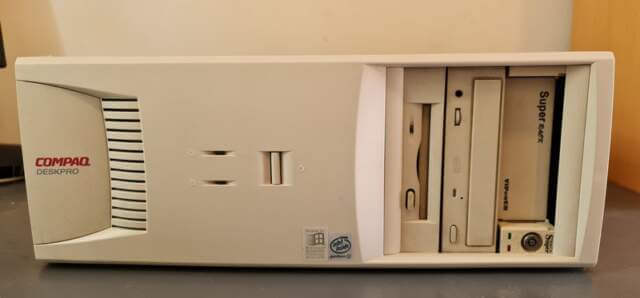

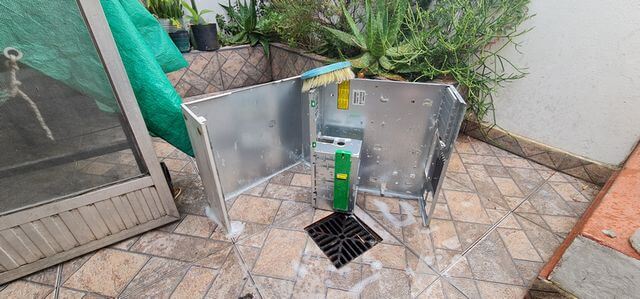

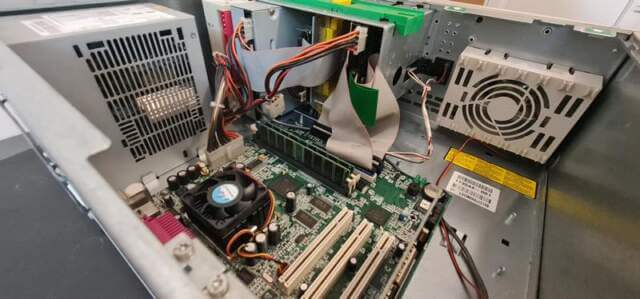
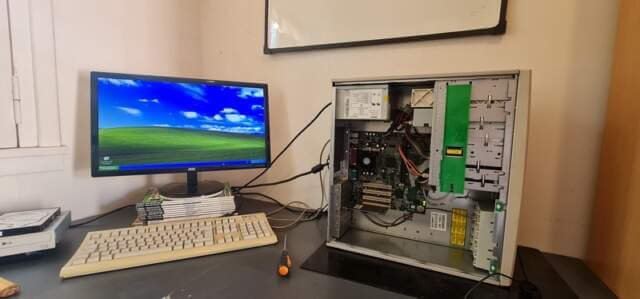
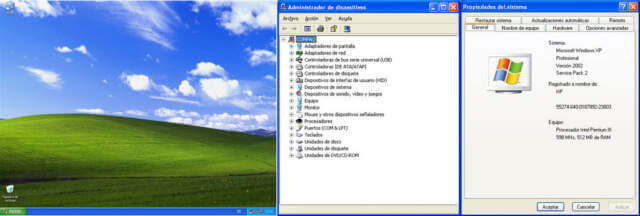

I have one that is still running W98, not a whole lot I can do with it, but it stills boots.
I hope you warn purchasers not to use it for online banking or for any private data they don’t mind being shared Marc given support ended in 2014 !! I wouldn’t be game to connect it to the Internet but good for kids and/or old games that don’t require an internet connection.
That said I understand the passion of keeping them going !
Cheers Reg
Thanks, Reg
It’s a bit like finding a stray dog in bad condition – you give it loads of TLC till it’s back on four legs and either keep it or find a new owner and in the end it’s up to them what they do with it.
Wow. I’m impressed that you bother refurbishing a Pentium 3. Don’t get me wrong, I’m a retro fan, so I would be happy to have for example something even older like a running Pentium 200 MMX for old DOS games. (I don’t have any right now).
And I’m all for sustainability as well. In fact, I’m still using a Core 2 Quad with 6 GB Ram. But here’s my point: Anything below a Core 2 is absolutely unusable nowadays for online. You need to have Windows 10 at this point due to security updates and even on a Core 2 that is painfully slow. 8 GB of Ram makes it more bearable.
Now if this person stays strictly offline and maybe only does a bit of Word or whatever, it’s fine. But considering the amount of time you put in into refurbishment, for the equal value of your labour you could buy a used Core 2 for sure, probably even an early i3/i5.
Shame it doesn’t have an AGP slot, then it would be a decent retro gaming machine.
As I said in the article, I already have enough retro machines in the den, so it’s just a labour of love really, until it finds a new owner.
Whether they go online or not is up to them and it’s not my job to tell them otherwise.
Great conversation article, Marc. I find that just because a computer is old, outdated by industry (really) standards??? Computers are outdated as soon as you buy them, as sellers want to dump their older stock for what is around the corner. These older computers, when properly cleaned, can help remind us that connecting online is something we take for granted. Having children learn the basic computer skills, prior to going online, can be a valuable learning tool. Yes, think back to when not every parent had cable TV, and kids grew up with local over the air stations, Mindblower!
Keep doing what you’re doing. There is a big group of retro gamers and 1998/1999 had some of the best games of all time. Running on original hardware is the best!